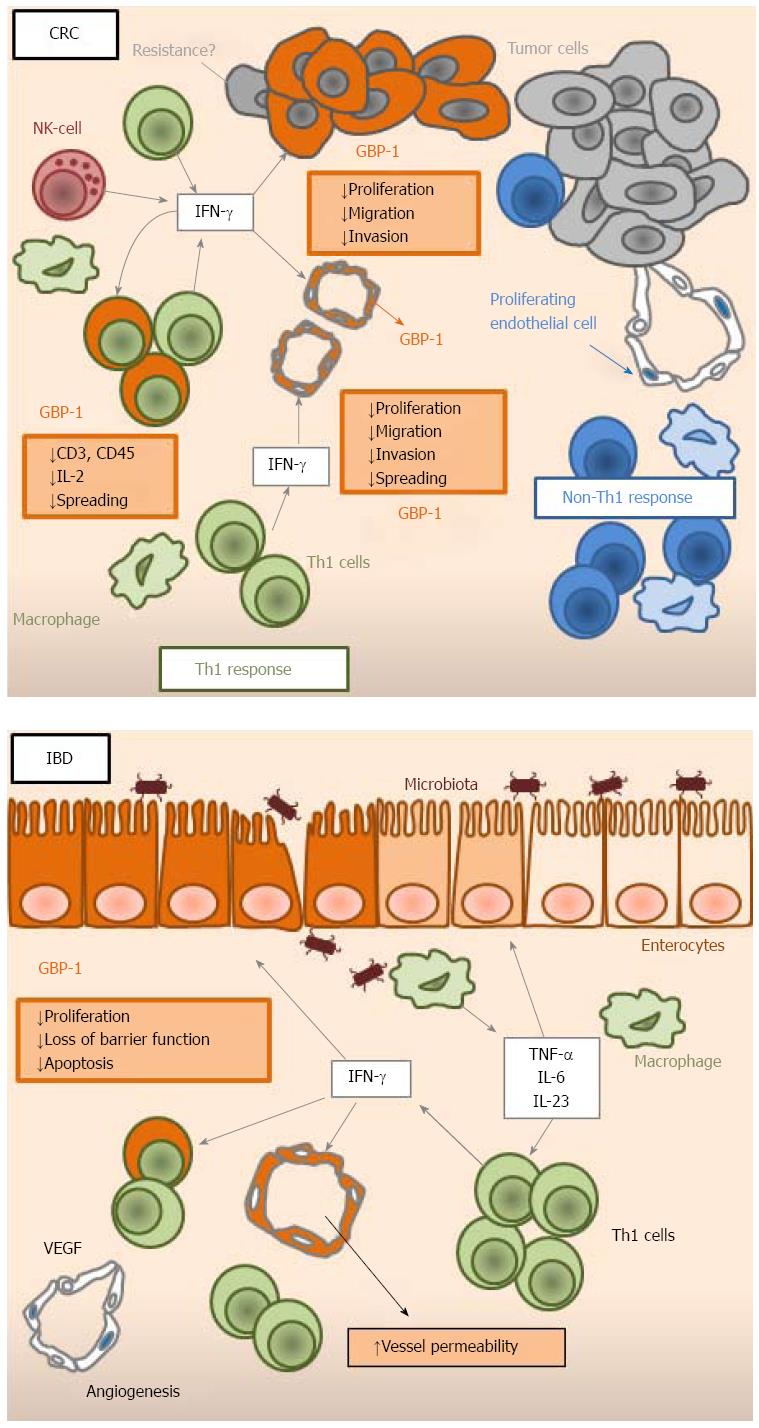Copyright
©The Author(s) 2016.
World J Gastroenterol. Jul 28, 2016; 22(28): 6434-6443
Published online Jul 28, 2016. doi: 10.3748/wjg.v22.i28.6434
Published online Jul 28, 2016. doi: 10.3748/wjg.v22.i28.6434
Figure 2 Role of guanylate-binding protein-1 in colorectal carcinoma and inflammatory bowel diseases.
In colorectal carcinoma (CRC), guanylate-binding protein (GBP)-1 expression is associated with a Th1-dominated micromileu and results in an angiostatic vasculature. In CRC tumor cells, expression of GBP-1 induces an anti-tumorigenic phenotype. Absence of expression in tumor cells in a GBP-1-positive context indicates a mechanism of resistance. In T-cells, GBP-1 participates in the modulation of the T-cell receptor signaling pathway. In inflammatory bowel disease (IBD), GBP-1 expression is elevated in active disease and inhibits the proliferation of intestinal epithelial cells, thereby exerting a protective effect against the loss of barrier function and apoptosis. Here again, GBP-1 is associated with angiostasis and T-cell regulation. INF: Interferon; IL: Interleukin.
- Citation: Britzen-Laurent N, Herrmann C, Naschberger E, Croner RS, Stürzl M. Pathophysiological role of guanylate-binding proteins in gastrointestinal diseases. World J Gastroenterol 2016; 22(28): 6434-6443
- URL: https://www.wjgnet.com/1007-9327/full/v22/i28/6434.htm
- DOI: https://dx.doi.org/10.3748/wjg.v22.i28.6434









